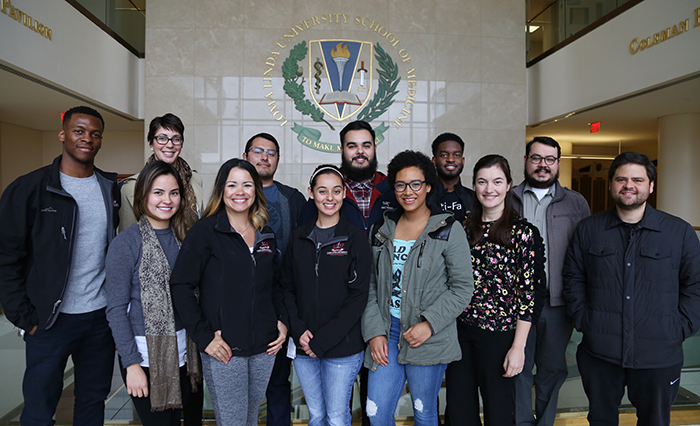The Center for Health Disparities and Molecular Medicine at Loma Linda University (LLU) School of Medicine recently received a grant for more than $2.6 million to fund a program that has vastly increased the number of highly qualified minority students in biomedical doctoral programs.
The award from the National Institute of General Medical Sciences, part of the National Institutes of Health (NIH), will continue to support the implementation of the “LLU-NIH Initiative for Maximizing Student Development program” (LLU-NIH IMSD). The program supports the graduate training of PhD students in the Integrative Biomedical Graduate Program at LLU School of Medicine.
Marino De León, PhD, serves as director of the IMSD program and principal investigator for the award. Carlos A. Casiano, PhD, and Daisy De León, PhD, serve as co-investigators and associate program directors.
The LLU-NIH IMSD program was established in 2001, and has become a cornerstone of Loma Linda University Health’s health disparities pipeline program, which offers summer research internships and career development activities to high school, college and medical students. Since its inception, the program has awarded more than 600 summer internships to burgeoning biomedical students.
“These students gain exposure to biomedical research and high-quality academic career developmental activities,” De León said. “These experiences expand their participation in college and postgraduate STEM (science, technology, engineering, and math) degrees and biomedical research.”
Prior to the program’s establishment, only 9 percent of the graduating PhD class in biomedical and behavioral fields at LLU were underrepresented minorities, but the program has been successful in attracting increased numbers of highly qualified minority students. In 2016, underrepresented minorities comprised 39 percent of the graduating PhD class in biomedical and behavioral fields. According to a 2017 National Science Foundation report, less than 8 percent of underrepresented minority students pursuing higher education (including undergraduate degrees) in the U.S. earned a doctorate in a STEM field.
LLU is one of approximately 50 institutions nationwide that have received competitive funding as an NIGMS IMSD training site. The new grant will provide 10 competitive awards to qualified students conducting their PhD studies in the School of Medicine. The fellows will participate in a rigorous evidence-based curriculum that complements formal training and conduct research under experienced LLU research scientists.
Over the past 15 years, the program has supported 51 PhD fellows — 26 of whom have already completed graduate training. Most IMSD alumni are currently pursuing postdoctoral studies or working in academia, government and pharmaceutical companies.
The IMSD fellows are required to participate in service-learning activities, and they are trained through a personalized development plan tailored to their strengths. The LLU-NIH IMSD program was one of the first in the nation to implement these features in order to improve academic research efficacy.
As a result of the interventions, students participating in the program have completed their PhD education at a rate higher than national levels. During the last 15 years, students participating in the LLU-NIH IMSD program exhibited a 2.8 percent attrition rate, far below the average attrition rate of 50 percent, according to the Council of Graduate Schools.

